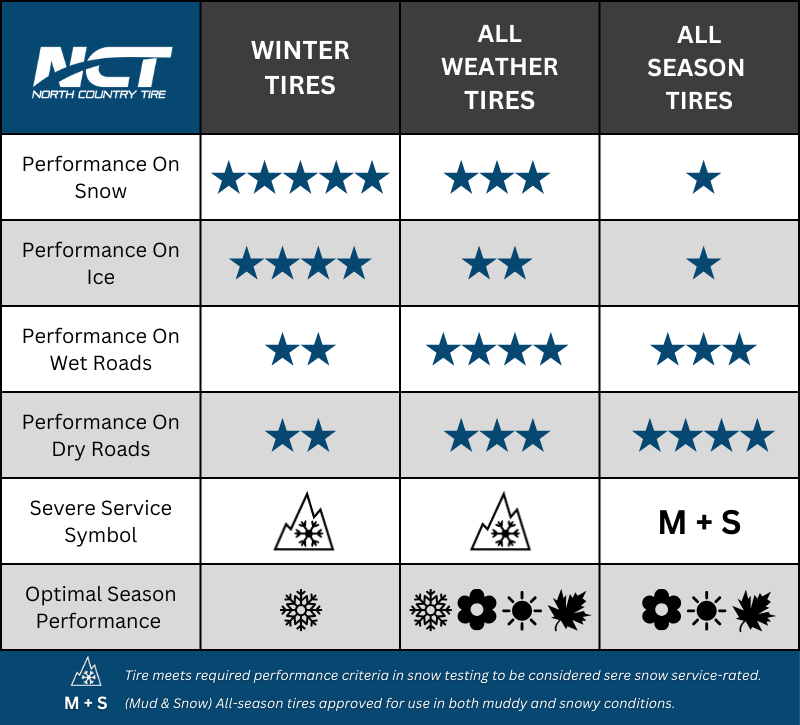TIRE TECH
Winter Tires Vs. All Weather Tires Vs. All Season Tires
Canadians are generally knowledgeable on the differences between all-season and winter tires. For people who want vehicle safety but don’t want to switch between two sets of tires, all-weather tires are a good option.
An all-season tire performs well in 3 seasons only – spring, summer and fall. However, the real question is; are all weather tires a safe substitute for dedicated winter tires? When they’re new, all-weather tires can pass the traction test applicable to a dedicated snow tire. But that does not mean they perform as well as a winter tire on snow and ice-covered roads. The following information provides a better analysis on how each type of tire performs in various weather and road conditions.
Winter tires are designed with siped tread blocks which evacuates water and slush more effectively, and softer rubber (silica) that maintains flexibility in colder temperatures. In warmer conditions, winter tires wear at a rapid rate and therefore tire changeovers are required once spring arrives.
Winter tires may bring additional costs with storage and tire changeovers. Not everyone has extra storage space which is why all-weathers are a desirable choice. But if you live in a region where you receive a lot of snow and temperatures dip very low, then winter tires are going to be your best option for safety and peace of mind.
All weather tires perform very well in the summer, spring and fall months and achieve good performance in winter. These tires can be used all year round so you don’t have to worry about storage or changeovers. Like winter tires, all-weather tires are recognized by Transport Canada as safe to use in snowy conditions and they both include the 3-peak mountain snowflake symbol on the sidewall.
All weather tires generally wear fast. Therefore, you’ll see shorter tread warranties on them. It makes sense, considering you are driving on these tires all year, versus changing out two different sets of tires with winters and all seasons.
All-season tires offer optimal performance in 3 seasons only - spring, summer, and fall. These are not ideal tires for harsh Canadian winters that bring a lot of snow and extremely cold temperatures as they lose grip at temperatures below 7 degrees Celsius. However, these tires do repel water effectively in the rain and grip the road well in hot conditions.
Most all-season tires that have been approved for muddy and snowy conditions have the 'M+S' designation symbol on the sidewall of the tire. With regards to mandatory tire requirements in Canada, mud and snow tires are approved for use in British Columbia if the tire has a tread depth of 3.5mm or more.






